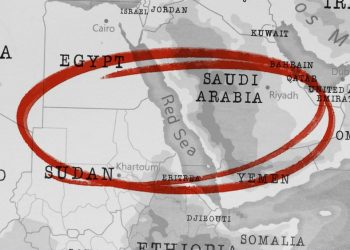The EEDI definition is a typesetter’s nightmare -Roy Beswick, fleet director of Moroccan
 There are few straightforward solutions to the ferry industry’s current raft of operational and regulatory challenges facing the ferry industry, most of them connected with fuel and emissions issues. That was the clear message to delegates at Interferry’s 36th annual conference in Barcelona earlier this month.
There are few straightforward solutions to the ferry industry’s current raft of operational and regulatory challenges facing the ferry industry, most of them connected with fuel and emissions issues. That was the clear message to delegates at Interferry’s 36th annual conference in Barcelona earlier this month.
The trade association’s CEO Len Roueche notes: “The conference confirmed that very little is in black or white when searching for relief fromthe ferry sector’s mounting economic and political pressures. Fuel costs are frightening and regulations to slash shipping emissions, although well-intentioned, are potentially catastrophic in both commercial and environmental terms. Assessing the complex array of operational and technical options often raises more questions than answers on the best way forward.”
RoyBeswick, fleet director of Morocco’s Comarit, said that operators felt threatened by the wave of regulatory proposals. “I’m not against regulations on green and sustainable ships but we need to go at a more reasonable pace,” he argued. “The EEDI definition is a typesetter’s nightmare – it has to be one of the most complexformulas ever seriously proposed to be a part of legislation.”
The keenest debate came in sessions covering LNG-fuelled ferries, sulphur-reduction scrubbing technology and the impact of European Union (EU) anti-pollution measures
The perceived divide between political will and commercial realism came into sharpfocus when a regulator and a shipowners’ representative debated EU regulatory issues.
Jesus Bonet Company, head of maritime safety and environment at the European Commission, denied that the EU was intent on deviating from IMO environmental targets. Commenting on the move to 0.1% fuel sulphur content in Emission Control Areas (ECAs) by 2015, he declared: “We support the IMO because they are right – sulphur gas is bad for citizens’ health. We know this is going to be a challenge for the sector but there are ways.”
Turningto greenhouse gas, he added: “It’s not the regulator’s job to ubstitute the judgement of scientists. Our White Paper on transport aimsto cut shipping emissions by 40% by 2050 because the evidence says CO2is ruining the planet and will have a disastrous effect on our hildren.” Likewise the Energy Efficiency Design Index (EEDI)- though not yet adopted for ferries – was “a great step head”.
He admitted that progress was slow on the many proposals for controlling emissions through Market Based Measures (MBM) but said an impact assessment would befinalised in Q2 next year. “This is not about drawing money from the sector,” he stressed. “We are trying to use the market as an optimiser of the system and strongly support a global solution. But we have said many times that, if this is not achieved, we will come up with a way to meet our targets that can be integrated with and strengthen the international process.”
Alfon sGuinier, secretary general of the European Community Shipowners’Associations (ECSA), insisted that a regional approach to MBM must be avoided,warning: “Shipping may become the milk cow for funding. The fairway is a compensation-based levy but it has to be a global solution that can beapplied to all flags.”
On sulphur content restrictions in European ECAs, he complained that no impact assessment had been carried out on the threat of a modal shift from sea toroad. “This could be anything up to 50% depending on the type ofgoods,” he warned, “but even at 10-20% there will be a snowball effect resulting in a vicious cycle of fewer services, lower frequency, less capacity and greater cost.”
Meanwhile distillate fuel availability remained a question mark and use of scrubbers- “not yet matured for long term reliability” – would increase both fuel consumption and CO2 emissions, while also affecting the stability of some ship types. Use of LNG was overshadowed by lack of bunkering facilities and “non-existent” safety rules regarding filling when passengers were on board. “These tools will not be ready by 2015 and we need to get an extension,” warned Guinier.
Source: World Bunkering





























































